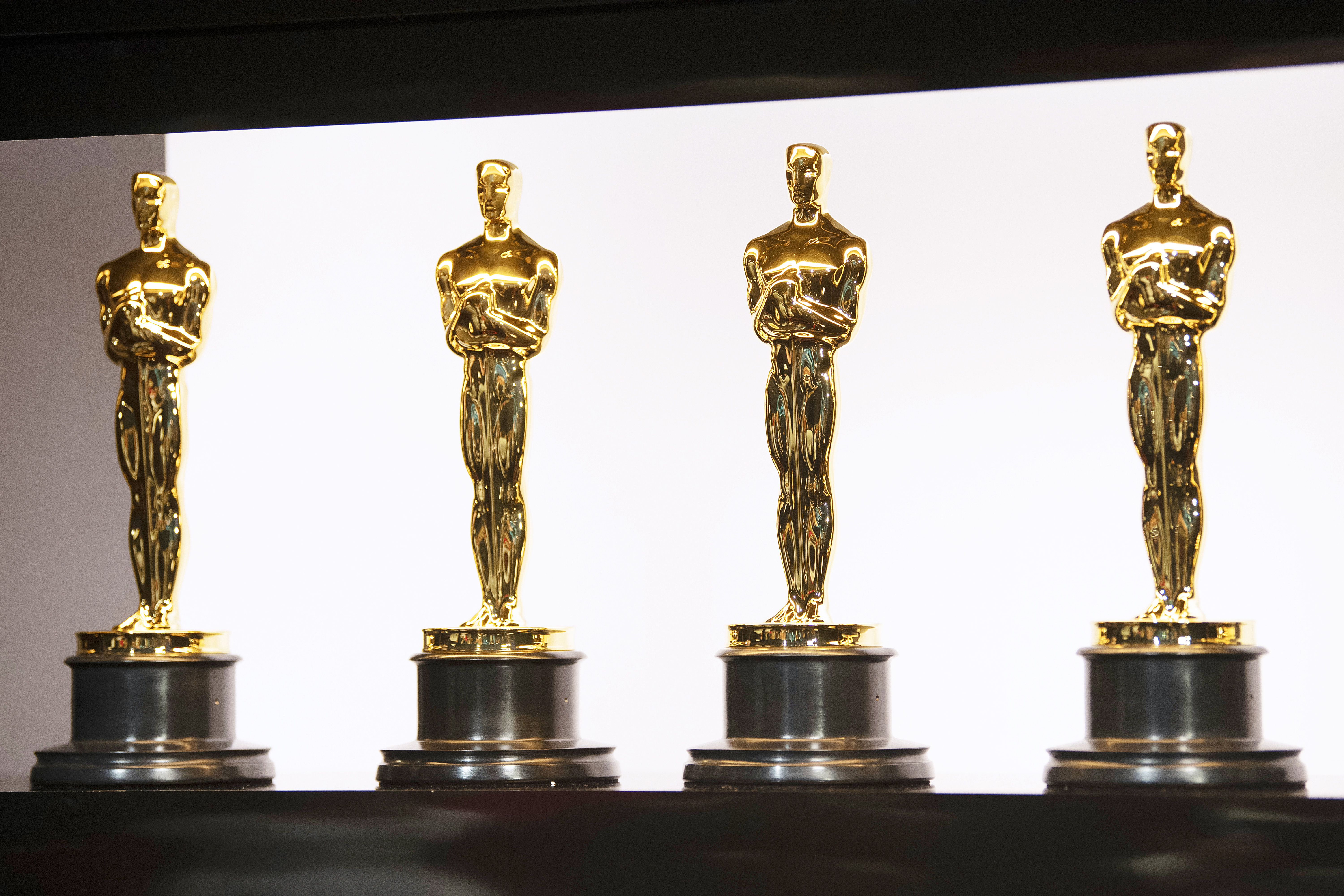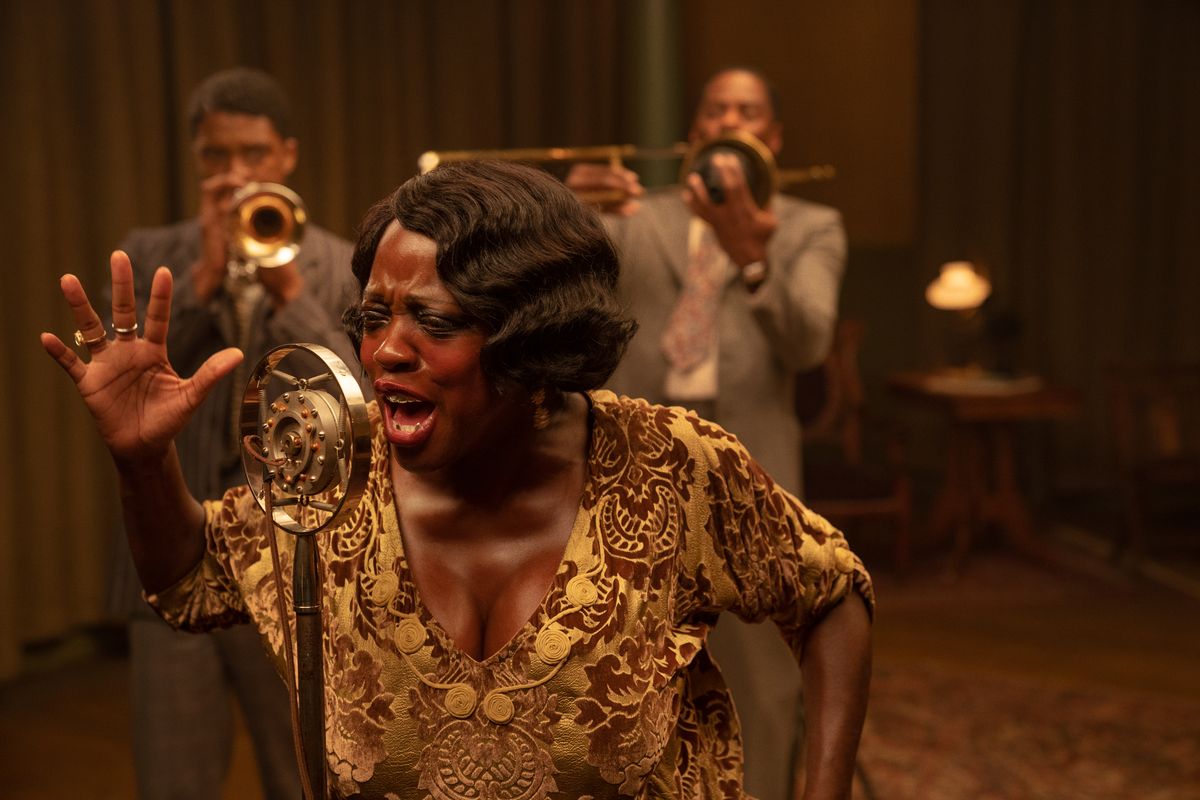The pandemic has upended every aspect of our lives, and award shows are no exception. Events like the Emmys and the Golden Globes were forced to resort to rely on Zoom for virtual ceremonies, and while we did get a few endearing moments (like an allegedly stoned Jason Sudeikis accepting his award for Ted Lasso in a tie-dye hoodie), both pulled record-low ratings. There’s something about swapping the typical glamorous Hollywood gala for what essentially amounts to a three-hour celebrity conference call that just doesn’t sit right with audiences. (Who wants to watch a bunch of people on Zoom when we spend all day stuck on the video-conferencing platform ourselves?)
It makes sense, then, that the Oscars would be desperate to avoid a similar dip in the ratings. But what’s the alternative? As Deadline reports, the Academy informed all nominees last week via a letter that there will be no Zooming at the 93rd Annual Academy Awards on April 25, and the only way they’ll be allowed to make an acceptance speech during the ceremony is if they attend in person in Los Angeles. The idea, presumably, is they’ll get enough stars in formalwear to attend that they can be the first major post-pandemic in-person awards show. The only problem? We’re still in a pandemic.
Even if you set aside the obvious concerns about the dangers of gathering a bunch of people in a room together, insisting that everyone attend in-person poses a logistical nightmare. Many nominees are based in other countries, some of which still have strict travel restrictions in place. (The U.K., for example, currently has a £5,000 penalty in place for anyone caught leaving the country for any reason other than “urgent business or medical reasons.”) Those who will be allowed to travel to Los Angeles will still have to deal with a minimum 10-day quarantine before and after their visit.
“The problem is this — there are still all kinds of travel restrictions leaving and re-entering the U.K.,” one Oscar-nominated producer told Deadline. “Even for vaccinated people. There is clearly a lag between the rule makers and the science and what they now know about the tremendous results of the vaccine. So, we are stuck here, without wives, and will somehow watch the Oscars like any other civilian to learn of the results! Since our freedom of movement is highly restricted because of the pandemic and no other reason, we were of course thinking there would be the ability to be remote.”
Besides the fact that spending the better part of a month in a hotel by yourself only to possibly lose the Oscar to someone else would be a huge bummer, studios and publicists are reportedly furious about the way sending their nominees to the ceremony may disrupt them. Let’s say, for example, a nominated actor is currently on location filming a new project. If he has to quarantine for two weeks on each leg of his journey to L.A. to attend the ceremony, production on the new movie will essentially be shut down for a month. And that hotel he has to quarantine in? He’s not footing the bill himself; Deadline spoke to one source whose client list includes nominees based all over the globe who said the required hotel stays for all of them would “bankrupt” their company’s entire budget. How do you pick and choose who gets to attend?
Their aim is to get more nominees to attend in-person by eliminating Zoom acceptance speeches, but it’s highly likely the Oscars are shooting themselves in the foot by doing so and will wind up with fewer stars at their ceremony. You thought a virtual ceremony was bad? How about one with no acceptance speeches that consists entirely of presenters mumbling, “So-and-so couldn’t be here tonight, so we accept this award on their behalf”? The fact of the matter is there’s simply no way everyone nominated for an Oscar this year will be able to attend in-person, and denying them the opportunity to say a few words remotely to celebrate the biggest achievement of their careers simply because they weren’t willing to travel overseas during a pandemic feels both cruel and foolish.
This article was featured in the InsideHook newsletter. Sign up now.

















